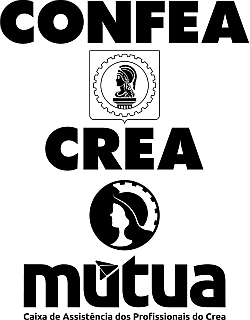Algoritmo genético para resolução do problema de p-medianas capacitado associado à distribuição de peças automotivas
DOI:
https://doi.org/10.4237/transportes.v20i2.478Abstract
Este artigo descreve um método de solução para um problema real de entrega de peças de um centro de distribuição de uma montadora de automóveis às suas concessionárias ou oficinas cadastradas, que pode ser modelado como um problema de p-medianas capacitado. O objetivo é determinar o número de caminhões a ser utilizado na operação de entrega de peças segundo a demanda conhecida dos clientes. O tamanho do conjunto de clientes atendidos (clusters) por cada caminhão é limitado pela sua capacidade pré-estabelecida, caracterizando um problema do tipo de p-medianas capacitado. A solução se baseia na aplicação da meta-heurística Algoritmo Genético para a formação de clusters de atendimento. Dois algoritmos de busca local foram aplicados para aperfeiçoamento das soluções encontradas pelo algoritmo principal. O método foi avaliado em relação às instâncias de problemas disponíveis na literatura e também aplicado ao problema real de distribuição de peças de automóveis.
Palavras-chave: p-mediana, capacitado, algoritmo genético, peças automotivas.
Abstract: In this paper we describe a method to solve a real world problem of delivering parts from the distribution center of an automaker to its dealerships, which can be modeled as a capacitated p-median problem. The objective is to determine the number of trucks being used in the operation of delivering parts according to known customers demand. The size of the set of clients served (clusters) by each truck is limited by its capacity pre-established, featuring a capacitated p-median problem. The solution is based on the application of meta-heuristic Genetic Algorithm for the clustering of attendance. Two local search algorithms were applied to improve the solutions found by the principal algorithm. The method was evaluated in relation to instances of problems available in literature and applied to the real problem of distribution of auto-parts parts as well.
Keywords: p-medians, capacitated, genetic algorithm, automotive parts.
Downloads
Downloads
Published
How to Cite
Issue
Section
License
Authors who submit papers for publication by TRANSPORTES agree to the following terms:
- The authors retain the copyright and grant Transportes the right of first publication of the manuscript, without any financial charge, and waive any other remuneration for its publication by ANPET.
- Upon publication by Transportes, the manuscript is automatically licensed under the Creative Commons License CC BY 4.0 license. This license permits the work to be shared with proper attribution to the authors and its original publication in this journal.
- Authors are authorized to enter into additional separate contracts for the non-exclusive distribution of the version of the manuscript published in this journal (e.g., publishing in an institutional repository or as a book chapter), with recognition of the initial publication in this journal, provided that such a contract does not imply an endorsement of the content of the manuscript or the new medium by ANPET.
- Authors are permitted and encouraged to publish and distribute their work online (e.g., in institutional repositories or on their personal websites) after the editorial process is complete. As Transportes provides open access to all published issues, authors are encouraged to use links to the DOI of their article in these cases.
- Authors guarantee that they have obtained the necessary authorization from their employers for the transfer of rights under this agreement, if these employers hold any copyright over the manuscript. Additionally, authors assume all responsibility for any copyright infringements by these employers, releasing ANPET and Transportes from any responsibility in this regard.
- Authors assume full responsibility for the content of the manuscript, including the necessary and appropriate authorizations for the disclosure of collected data and obtained results, releasing ANPET and Transportes from any responsibility in this regard.










